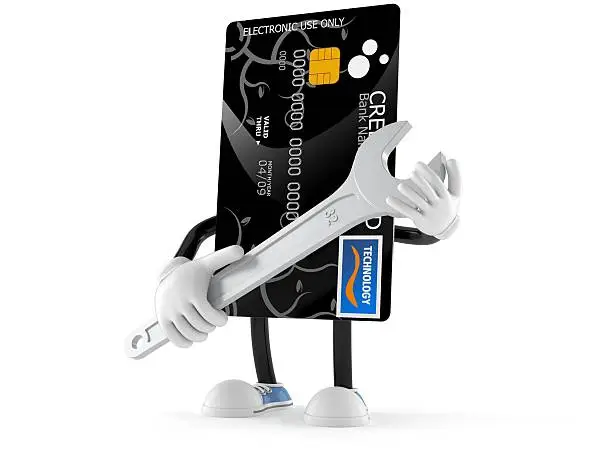Correcting credit is daunting enough, but this may be even truer when a person tries to rebuild the credit scores following a financial mishap. The correct ways to improve your credit score along with increasing the scores do include what you should do to enhance the credit. However, again, one must never forget to be even more cautious of the scams that could go against the people on the lookout for quick solutions.
Credit repair scams are merely wastages of time and money to people, and even threaten their credits at the same time. It gives an overview of how to detect them, how not to become a victim to them, and how lawfully rehabilitate credits.
Understanding Credit Repair Scams
Credit repair scams generally promise to “clean up” your credit overnight. Sometimes, the service promised even guarantees specific results. Credit repair scams often offer hefty service fees for services that do not work or are illegal.
The credit scammers frequently misrepresent facts, seek payments before doing work on your case, and provide information that is incorrect about your rights.

Red Flags of Credit Repair Scams
- Quick Credit Score Boost Promises Never is a credit repair agency that is honest about overnight transformation in your score. Be wary of an organization which promises you that it would boost overnight or sooner-it’s a red flag. The clock ticks time-wise for every individual whereas outcomes depend on various circumstances of individual cases.
- Special Requests for Advance Payment A good credit repair company collects its service fee only after it has finished the work, not before. Special requests for advance payment is, in fact one of the main warning signs of a scam artist who may not deliver the services promised.
- Another big red flag would be the lack of transparency. A credit repair company that you can trust must give you in detail a defined plan about exactly what they are going to do for you, how they will help improve the credit, and what step they will undertake to achieve that. If the business really does not say what exactly they are going to do, and how you are likely to get the best result from it, that is a major red flag.
- The perpetrators of this scam will force their victims to dispute real information on a credit report or to get a credit using an EIN instead of the SSN. Whatever of these actions they commit is illegal and may land that person in some kind of legal trouble.
- No Written Contract: Legitimate credit repair companies will have a contract that outlines your rights, the services they claim to offer, and any fee that you may incur. If there is no written contract, get out of there.
Real-Life Examples of Credit Repair Scams
Many credit repair scams victims lost thousands of dollars. For example, an outlaw thief can promise you that he or she can delete everything showing up on your report as including your late payments or bankruptcies for an outrageous fee .
After pocketing that money, he or she leaves town leaving your credit in its previous status but pocketing funds.
Related to fraud in power of attorney, most common and usual fraud is the signing of complete authority over the credit by the fraudster. It so happens that an individual’s credit report is modified by a scam and this is never reported to the client.

How to Protect Yourself from Credit Repair Scams
- Know your rights. Learn about CROA and how to prevent abusive practices coming from credit repair organizations. The CROA would tell you that no credit company should collect advance fees for prepaid activities; a credit company should explicitly present you with a written contract; and a credit company has to inform you about having the right to dispute any information at your credit report that is being inaccurately reported.
- Research on the company: This is finding out the past background of a credit repair service company you are about to join. Know its BBB rating and read more about reviews and testifies of customers. Try to find any complaints reported against the firm, and look out for red flags that signify a scam.
- Ask Questions: Legitimate businesses will not mind the questions you ask. You will get good, accurate information of what they are selling. If the company can’t or won’t answer your questions, then it is probably wise to go somewhere else.
- Don’t Give Up Your Information Too Quickly: Be cautious about giving your Social Security number, credit card number, or other personal data when you just hear of the business.
- Credit Monitoring Service: It may keep tracking your credit report for any update. This means in the case of fraud, it’s detected right away because the service can look into it immediately. So, so to speak, it doesn’t prevent the scam, but just that line in defense.
- Trust Your Gut: If you have that feel in your gut that something does not feel right about the credit repair service you are considering, trust it. A high-pressure sales approach with a push to act quickly or else, or any other behavior that makes you uncomfortable is a red flag to avoid, or continue to search.

Legitimate Ways to Improve Your Credit
- Review Your Credit Report Obtain one free credit report at all three major credit bureaus: Equifax, Experian and Trans Union. And actually look through the reports three times for errors in them-error personal information, duplicate accounts or accounts you don’t even know exist.
- Wrong Information Dispute: If you find some mistakes on your credit report, then you have the legal right to dispute those over the credit bureau. You may send an official dispute letter with attached proof of the same and the credit reporting agency falls under the legal duty to follow up on an investigation, which may take up to 30 days to give a reply.
- Pay on Time. According to history, payment is always the topmost factor in scoring credits. Thus, be punctual and come up with reminders and automated payments so you will never miss another deadline.
- Pay off the debts: the more you have the less good your credit score will be. Clear out all of the balances on credit cards and loans. A debt snowball pays off the littlest first; a debt avalanche pays off the loans with the highest interest first.
- Use credit cards judiciously: Keep your balances on all credit accounts low. Pay no more than 30% of what each has established as its limit. That is, pay no more than 30% of how much you owe compared to how much you are allowed to use. Lowering that percentage number and your credit score will increase.
- Avoid Opening Many New Accounts: For you, every time you are applying for credit, it creates a hard inquiry in your report. It only keeps pounding your credit score down, so be cautious while you are applying for new credits and never apply for several in a short period of time.
- Consult a credit counseling service Even if you are overwhelmed with debt or do not know where to begin, seek counseling from a reputable credit counselor. A credit counselor will guide you on the road back to taking control of budgets, debt management, and finding a solution to your impaired credit.

Real-Life Success Stories
Case Study 1: Sarah’s Journey to Credit Recovery
Sarah drowned under credit card debt following a wave of medical bills that she had not expected. She was frustrated and did not know what to do or where to go.
It was during this time when she almost became a victim of false or catchphrases dished out by a speedy credit repair scam.
Instead, she asked for a legitimate credit counseling agency. This agency offered strategies to work out the budgeting and how to prioritize debts with a potential payment schedule.
She paid off the debt over the next year, more than 100 points above the starting point without becoming a victim.
Case Study 2: Mark’s Path to Rebuilding Credit
The same year he graduated college, several years ago, his marks surprised him with errors that were plentifully filling his credit report and really dented his score. This was the thought of hiring a company that said it could clean up his report overnight, but he opted to do these things himself instead.
Mark questioned the inaccuracies directly with the credit bureaus, provided documents related to the errors, and pursued them. After several months, corrections had been made to the inaccuracies as Mark’s credit score had improved dramatically.
How Our Team Came Up with These Ideas
Since this is among several direct effects of such credit repair scams, it causes damages to its victims. By spending so many years being engaged in their work and when attached to clients, they hear the stories and thus know how much awareness and education play an important role while dealing with these scammers.
We have realized that most of the people are victims of credit-improving solutions that they rush for in a hurry; and hence, they fall prey to these scams. Therefore, this guide has been based on experience along with the latest research and our desire to help people make the right decisions regarding their credit.
Our goal is to equip you with live illustrations of how to pass through credit repair safely and effectively with sound, fact-based examples.
Conclusion
Credit repair is only possible if well done, patiently with knowledge, and adequate planning. Sure, everyone would want quick fixes, but everyone should be watchful not to fall into the trap of those scams that promise quick fixes.
Take your free time learning about rights, knowing more about the credit repair companies, and utilize legal ways of repairing your credit as an alternative if you are not being devoured by all scams.
Remember, good credit is not overnight, you will have to watch, make smart decisions, and act accordingly to make sure your future. If you do things the right way then be sure you would repair your credit over time.


Leave a Reply